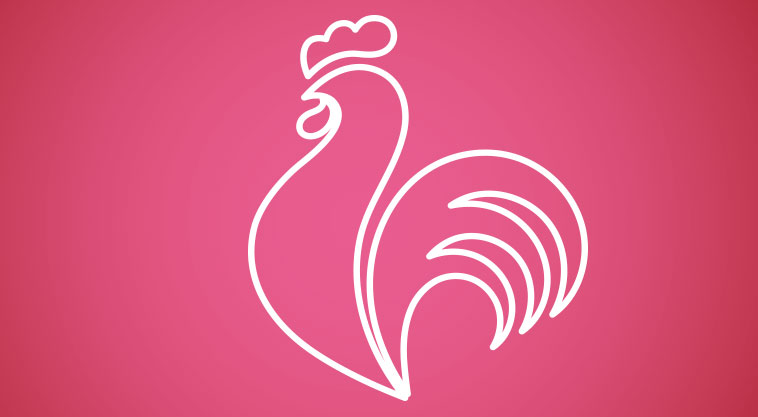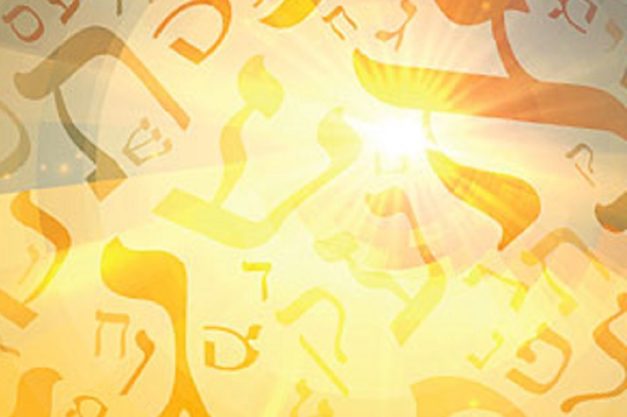Reaching for Freedom

W
hat should go through our minds as we say the brachah of matir assurim, thanking Hashem for releasing prisoners? Do we think about prisoners of war? People who are unjustly imprisoned? For many of us, it’s hard to find a personal connection with this brachah. Why is this one of the brachahs that we say every day?
Each morning when we wake, we move from a state of sleep to a state of wakefulness. The Abudraham analyzes what happens as we open our eyes each morning. He explains that at night our limbs become heavy and stiff, and when we wake we need to stretch and release them. This release from their stiffness of the night is the subject of our brachah. Matir assurim — Hashem releases our limbs from their prison of stillness.
Rav Moshe Bernstein in Laboker Rinah expands upon this idea. Indeed, our every movement is a direct gift from Hashem. Unless we’ve recently been in a cast or incapacitated in some way, Rachmana litzlan, we take our ease of movement for granted. But every movement is directed by Hashem, and is a special gift granted to us throughout our day. Chovos Halevavos [Shaar Hachna’ah, chapter 5] explains that we really can’t take care of ourselves, and this realization should lead to a greater dependence on Hashem. If we need Hashem to be able to move even a small finger, how much more so we need Hashem to be able to accomplish much greater things during our day.
This brachah brings to the fore, in a very concrete way, the reality that we’re all “imprisoned,” and the only way we can be free to accomplish is if Hashem wills it. Tomer Devorah, in the first chapter, gives a profound example of this from the Navi. When the king Yeravam is offering an incense offering, he’s rebuked by a navi. Yeravam extends a hand to try and grab the navi, and his hand withers. He is powerless. At each and every moment, our mobility and use of our limbs is thanks to Hashem’s beneficence.
Tomer Devorah points out the level of Hashem’s forgiveness: At the very moment we’re using our limbs to sin against Him, He infuses them with vitality and allows them to function. At the very moment a person speaks lashon hara, he is still being bestowed with the gift of the ability to speak.
With unbounded love and patience, Hashem infuses us with strength and ability. Whether or not we deserve it, we’re given the opportunity to use every limb in our body. As we say this brachah, we can focus on the special supervision Hashem has over every single one of us — and over each and every limb. It’s not just that Hashem sees us, He relates to us with love, despite our human frailties. Each morning as we say this brachah, we can allow a special warmth to flood through us, spilling out onto our entire day.
Confined
Rav Alexander Mandelbaum in Aromemcha Elokai Hamelech extends the imagery of being released from bonds. He explains that there are myriad situations in life where we feel confined. A person may be sick, unemployed, or enduring any challenge. This brachah underscores the fact that we’re totally dependent on the will and help of Hashem to extricate ourselves from difficult situations. By starting our day with the declaration that Hashem is “matir assurim”— He releases the imprisoned — we internalize the understanding that whatever situation you’re in in, it is directed from Above. This brachah is also an opportunity to thank Hashem when we experience salvation, expressing our gratitude to Him for orchestrating our release.
Constraints and confinement are not limited to physical situations. A person may be in the throes of spiritual challenges, struggling to hack away at the confusion and reach clarity, or desperately trying to find Hashem in a situation of hester Panim.
Laboker Rinah explains that this brachah is a recognition that Hashem helps us in our spiritual struggles as well. We’re all engaged in an extended battle with the yetzer hara, who tries to prevent us from being the type of eved Hashem we long to be. Dovid Hamelech describes this in Tehillim (142:8): “Hotzea mimasger nafshi — Release my soul from its confinement,” he implores Hashem. Malbim explains that Dovid Hamelech was longing to leave the physical desires of this world, to embrace a world of pure spirituality.
Bonds of Physicality
What comprises our bonds? Rav Ephraim Fordham in Lefanav Na’avod explains that we are all challenged to tackle our negative middos — whether anger, stinginess, haughtiness — for they prevent us from being free to serve Hashem. How many times do we fall into these negative behaviors, and then berate ourselves for still acting in the same patterns? We long to be free from the desires that seem to overtake our lives.
This brachah is a daily reminder that if we don’t ask Hashem for help, we will never be able to defeat the yetzer hara. When saying “matir assurim,” we can request that we be successful in slowly unleashing ourselves from the negative impulses that imprison us.
On a practical level, how can this be achieved? Rav Shlomo Wolbe in Alei Shur emphasizes that when working on self-improvement, it’s imperative to take small steps; drastic, all-encompassing resolutions is a quick route to failure. We can think of our path to self-improvement as comparable to taking medicine. In all but the most extreme cases, we take a small dose each day — or sometimes, a couple of times a day. Over time, this effects global healing. Slow but steady needs to be our mantra.
At the start of our day, this brachah reminds us to enlist Hashem in our efforts. We can pinpoint concrete goals: Today, I will not lose it when my toddler climbs out of bed for the 16th time/ when my son is chutzpadig/when my teen tells me that her life is a mess and it’s all my fault. This brachah can remind us that life is a continuous struggle — and we need to embrace that, with determination.
On a deeper level, Rav Efraim Fordham in Lefanav Na’avod notes that perhaps the goal is not to emerge victorious, but simply to engage in the struggle. He relates the following anecdote: A bochur came to his rebbi, depressed. “I’m trying so hard to work on myself, but I only succeed for a little bit before I fall again,” the boy said. The rebbi thought for a few moments and then gave the following startling reply. “I’m ready to take the consequences for all your failures, if you’ll only give me the reward for your efforts in trying to overcome these struggles!”
In a similar vein, a few short weeks before he passed away, Rav Chaim Friedlander asked Rav Shach what he should work on. Rav Shach told him that the key is improving middos. Would Rav Friedlander be able to succeed in fixing all his middos before he died? Of course not! But that wasn’t the point. The point is the process. The effort. The brachah is written in the present tense, to remind us of the continual struggle to free ourselves from negativity.
Longing for Redemption
There’s another aspect to this brachah, which we find sourced in a pasuk in Devarim 26:15: “Lishmoa enkas asir — to listen to the plight of the prisoner.” The Netziv notes that the ones who will be redeemed in the future are those who long for the redemption, the people who feel the pain of the glory of Heaven that’s desecrated, those who can’t live comfortably in galus. This brachah, therefore, is a heartfelt expression of longing that Hashem finally redeem His people.
Each morning as we say this brachah, we can think about the many aspects of being imprisoned. We thank Hashem for limbs that move — and for salvation from a difficult situation. This brachah also serves as a time to ask Hashem to help us with the constant struggles to overcome the evil inclination. As we say these words, we can strengthen ourselves with the thought that to the extent we realize how much we need Hashem in every endeavor in our lives, to that extent we have already achieved a level of freedom. (Originally featured in Family First, Issue 595)
Oops! We could not locate your form.



